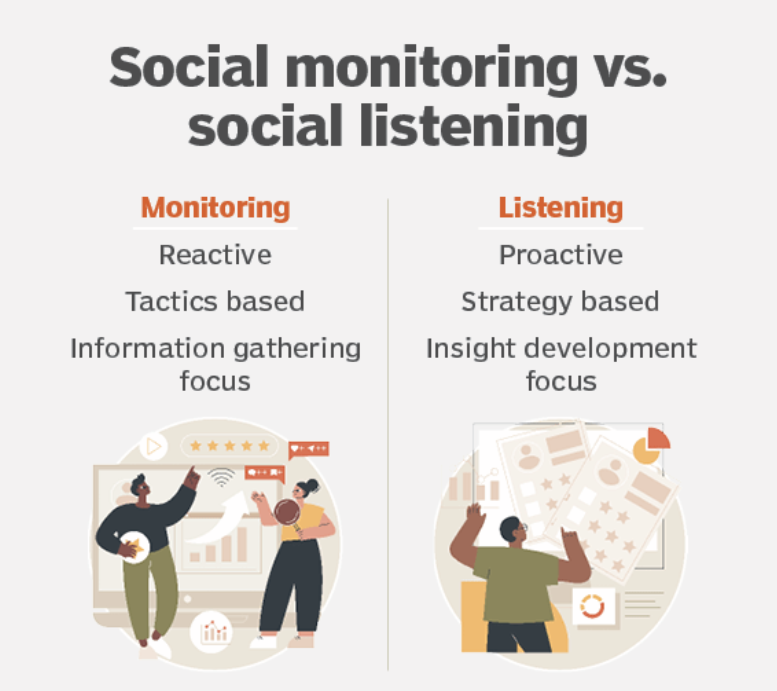Using Social Listening Tools for Crisis Management in Digital Marketing
Meta Description: Discover how social listening tools can enhance your crisis management strategies in digital marketing, helping you protect your brand and engage effectively during a crisis.
In an era where information spreads rapidly and public sentiment can shift in seconds, understanding the conversations surrounding your brand is paramount. Elena Marović, a digital marketing strategist with over 5 years of experience, has helped numerous companies optimize their online presence and navigate the complexities of consumer engagement. This blog explores the significance of social listening tools in managing potential crises, outlining actionable strategies that can help every marketer, brand manager, and business owner prepare for a digital landscape fraught with challenges.
Understanding Social Listening: What is it and Why is it Important?
Defining Social Listening
Social listening refers to the proactive approach of monitoring digital conversations about your brand, products, or industry. It involves tracking social media channels, forums, and other platforms where users share their opinions and experiences in real-time. Through social listening, brands can glean insights into what customers are saying, enabling them to respond promptly to any emerging issues.
A report by Sprout Social highlights a crucial data point: 70% of consumers feel more connected to brands when they can have a two-way conversation. This emphasizes the importance of not just broadcasting messages, but also listening and engaging with your audience, particularly when crises arise.
Case Studies: Successful Use of Social Listening Tools in Crisis Management
Real-World Examples
To illustrate the power of social listening, consider how renowned brands effectively navigated crisis situations:
United Airlines: After facing public outrage over a passenger's removal from a flight in 2017, United Airlines ramped up their social listening efforts. By promptly addressing concerns on social media, they managed to control the narrative and mitigate damage to their reputation.
Chipotle Mexican Grill: During the E. coli outbreak in 2015, Chipotle utilized social listening tools to monitor consumer sentiment and adjust their communications accordingly. This strategy played a crucial role in regaining customer trust as they communicated transparency about changes made to enhance food safety.
Graph: Social sentiment before, during, and after major crises for brands like United Airlines and Chipotle.
The Impact of Crises on Brand Reputation
Statistics from Edelman reveal that 65% of consumers trust a brand more when they see it actively engaging with customers across social channels, particularly during crises. This indicates the necessity of having a robust social listening framework in place to understand public sentiment and respond accordingly.
As per Gartner, 53% of marketing leaders reported investing in social analytics, underscoring the growing recognition of social listening as an essential tool in crisis management.
Best-Practice Strategies for Implementing Social Listening Tools
1. Proactive Monitoring
Setting up real-time alerts using platforms like Google Alerts, Mention, or Brandwatch can help catch potential crises before they escalate. Here’s how to effectively set these up:
- Choose relevant keywords related to your brand, products, and industry.
- Customize your alerts to receive notifications concerning positive and negative mentions.
- Monitor different social media platforms to cover a broad spectrum of conversations.

2. Sentiment Analysis
Utilizing tools such as Hootsuite Insights and NetBase, marketers can perform sentiment analysis. These tools assess public sentiment and offer actionable insights, allowing your brand to:
- Adjust messaging strategies based on prevailing emotions.
- Identify critical themes and topics that require immediate attention.

3. Engagement Best Practices
During a crisis, maintaining engagement with customers is crucial. Strategies to consider include:
- Responding promptly and empathetically to inquiries and concerns expressed on social media.
- Using insights gained through social listening to tailor responses.
- Regularly updating stakeholders and consumers regarding progress or changes made in response to the crisis.
Actionable Tips for Effective Social Listening
To successfully implement social listening in crisis management, follow this checklist:
- Set clear metrics for success: Determine what successful crisis responses look like in your organization (e.g., improved sentiment scores, quicker response times).
- Engage regularly with your audience: Use insights from social listening to open dialogues and foster trust.
- Monitor beyond your brand: Track industry trends, competitor sentiment, and larger social movements to prepare for potential impacts on your brand.
Common Pitfalls and How to Avoid Them
1. Misinterpretation of Data
Marketers often fall prey to biases when analyzing social media data. To ensure research validity:
- Cross-check findings against multiple data points.
- Leverage comprehensive reporting tools to avoid oversimplification.
2. Delayed Responses
Delaying responses to negative sentiment can be detrimental. Social listening empowers brands to react swiftly, mitigating potential fallout from crises.
Future Trends in Social Listening
Emerging Technologies
Get tips like this in your inbox
One growth tip every Tuesday. No spam.
As technology evolves, so does social listening. Innovations in AI and machine learning allow for more nuanced data analysis, enabling brands to understand emotions and intentions behind conversations. This provides deeper insights into consumer sentiment.
Focus on Diversity and Inclusion
Social listening will increasingly evolve to better capture the sentiments of diverse demographics, ensuring brands maintain relevance in a global marketplace.
Conclusion
In conclusion, leveraging social listening tools for crisis management is no longer optional but a necessity in digital marketing. By adopting a proactive approach, brands can effectively enhance their reputation, engage with their audiences, and navigate the complexities that come with crises.
Consider integrating social listening tools into your marketing strategy today. For more insights, explore our webinars and resources designed to empower your digital marketing efforts, enabling you to stay ahead of the evolving landscape. Engage with us to enhance your knowledge and ensure your brand is prepared for any challenge that may arise in the future.

